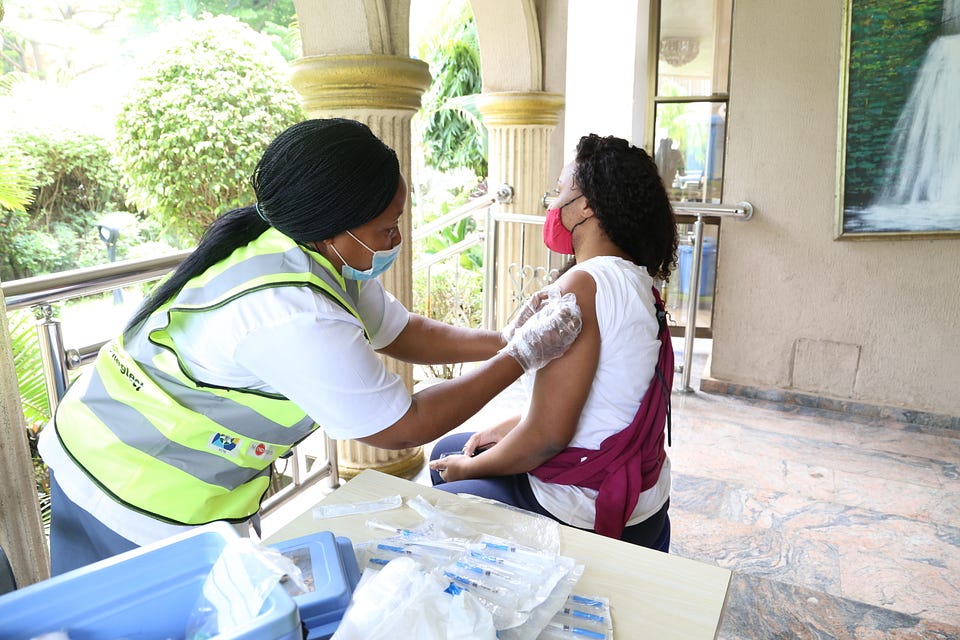Hospitals across Nigeria were thrown into crisis on Wednesday as nurses and midwives commenced a seven-day nationwide warning strike. Operating under the National Association of Nigerian Nurses and Midwives (NANNM), the health professionals are demanding improved welfare, working conditions, and systemic reforms. The strike has left patients stranded and medical services disrupted in major health institutions including UCH, FMCs, and others.

The strike follows a 15-day ultimatum issued on July 14, 2025, urging the Federal Government to intervene and avert the breakdown of services at federal health institutions.
GOVERNMENT CALLS FOR DIALOGUE
Minister of Labour and Employment, Muhammad Dingyadi, appealed to the union during a meeting in Abuja to reconsider the strike, emphasizing dialogue over confrontation.
“A strike is not the best solution to industrial disputes”, the minister said, assuring that the government was engaging stakeholders to address the grievances. A follow-up meeting was scheduled at the Federal Ministry of Health headquarters.
SERVICES CRIPPLED IN ABUJA HOSPITALS
In Abuja, public hospitals scaled down operations or discharged patients altogether due to a critical shortfall in nursing personnel. At Federal Medical Centre (FMC), Abuja, The Guardian observed sluggish medical activities, long queues, and frustrated patients waiting for attention with little or no care.
Victor Asu, NANNM Chairman at the facility, confirmed total compliance:
“Although doctors are still working, the absence of nurses has slowed things down. We’ve agreed not to attend to any patient or stay overnight in the wards. This is a full strike.”A patient relative, Abu Isah, lamented spending over two hours without being attended to.
A doctor, who pleaded anonymity, revealed:
“We are overwhelmed. Without the nurses, we can only deliver basic care. Beyond that, we’re incapacitated.”At National Hospital, Abuja, patients filled corridors and waiting areas, with no nurses in sight. Doctors were forced to handle routine nursing duties, severely slowing down service delivery. Joe Akpi, NANNM Chairman at the hospital, warned of an indefinite strike if demands remain unmet:
“This is a warning strike. If nothing changes, we’ll issue a fresh 21-day ultimatum.”At Wuse General Hospital, patients at the Accident and Emergency Unit were reportedly discharged as doctors struggled without support.
UCH NURSES JOIN STRIKE, ABANDON DUTY POSTS
At University College Hospital (UCH), Ibadan, nurses also joined the strike following an emergency congress held at the hospital’s Nurse Lounge. Many who reported for duty in the morning left the premises shortly after.
Comrade Olufunmilola Familu, Oyo State NANNM Chairman, listed their demands, including recruitment of more nurses, provision of medical equipment, establishment of a nursing directorate at the Federal Ministry of Health, fair representation, and gazetting of the nursing scheme of service as approved by the NCE in 2016.
She said:
“We are concerned for the patients, but this strike is necessary. There are other healthcare professionals available for emergencies.”PATIENTS SUFFER IN ABEOKUTA AS FMC NURSES EXIT
In Abeokuta, Ogun State, families of patients at Federal Medical Centre (FMC), Idi-Aba, lamented the burden imposed by the strike. With no nurses on duty, doctors advised relatives to move patients to private hospitals—an option many could not afford.
Pastor Mike, whose mother was hospitalised, said:
“We were told our nurse is off duty because of the strike. We’re trying to relocate her, but private hospitals are costly.”Boluwatife Idowu, another relative, worried about her stroke-ridden mother who couldn’t be moved due to financial constraints.
The Acting NANNM Chairperson at FMC Abeokuta, Olufunmilola Adekunle, insisted the strike would continue until the Federal Government responds. She accused the Bola Tinubu administration of neglecting health workers’ welfare:
“We’re overworked, underpaid, and ignored. Many suffer chronic pain from long shifts. If this continues, the ‘Japa’ trend will worsen.”TOTAL SHUTDOWN IN YENAGOA AND BAYELSA COMMUNITIES
In Yenagoa and other parts of Bayelsa, healthcare was completely grounded. At Amarata Primary Health Centre, the facility remained shut by 9:00 a.m. The story was the same at FMC Yenagoa, where patients loitered without receiving medical attention.
NANNM Chairman at FMC Yenagoa, Liberia Woyengibarafagha Progress, led the enforcement team and declared there would be no skeletal services:
“We have nine-point demands including gazetting our scheme of service, implementation of the Industrial Act 2012, provision of equipment, and the creation of a dedicated nursing department at the Federal Ministry of Health.”He added:
“Nurses must be included in health policy leadership. We are the majority, yet not recognised.”Comrade Amos Ombufa, National Treasurer of NANNM, reiterated the seriousness of the strike:
“This is a total shutdown affecting federal, state, and local government nurses. After this, we’ll issue a 21-day ultimatum before an indefinite strike.”MANAGEMENT STRUGGLES TO COPE
Mr Akpedi Bernard, PRO of FMC Yenagoa, confirmed that hospital management anticipated the strike and tried to mitigate it by deploying doctors and senior management nurses for critical cases.
“We attend to over 70 percent of Bayelsa’s healthcare needs. This strike is a major blow.”SHEHU SANI BACKS STRIKING NURSES
Former senator and rights activist Shehu Sani has urged the Federal Government to meet the nurses’ demands. He warned that the strike could compromise public health nationwide.
On Facebook, he posted:
“If a nurse is angry, dealing with debt, or school fees pressure, going to her for an injection is risky. Nurses’ emotional well-being affects the quality of care they provide.”He called on the Federal Government to act swiftly:
“Fair treatment of medical professionals is vital for national health and safety.”This strike highlights a deeper crisis in Nigeria’s healthcare system—chronic underfunding, poor personnel welfare, lack of equipment, and a brain drain worsened by the ‘Japa’ phenomenon. Nurses form the backbone of patient care, and their withdrawal reveals the fragile state of health delivery nationwide. If unresolved, this strike could trigger a wider collapse in public healthcare services.